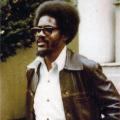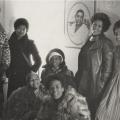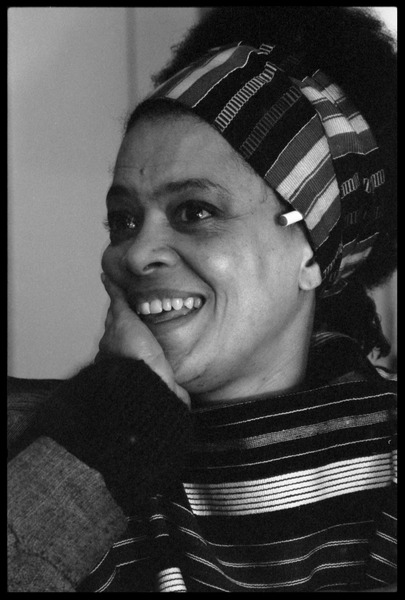124. Double Jeopardy: Black Feminism
Toni Cade Bambara, the Combahee River Collective, the Brixton Black Women's Group, and Awa Thiam critique white feminist and black nationalist failures to recognize the unique struggle of the black woman.
Themes:
• T. Cade Bambara: The Black Woman: an Anthology (New York: 1970).
• B. Guy-Sheftall (ed.), Words of Fire: an Anthology of African-American Feminist Thought (New York: 1995).
• A. Thiam, Black Sisters, Speak Out: Feminism and Oppression in Black Africa, trans. D.S. Blair (London: 1986) [originally published as La Parole aux Negresses (1978)]
• M. Wallace, Black Macho and the Myth of the Superwoman (London: 1978).
---
• W. Breines, “What’s Love Got to Do with It? White Women, Black Women, and Feminism in the Movement Years,” Signs 27 (2002), 1095-1133.
• W. Breines, The Trouble Between Us: An Uneasy History of White and Black Women in the Feminist Movement (Oxford: 2007).
• Brixton Black Women’s Group, “Black Women Organizing,” Feminist Review 17 (1984), 84-9.
• K.-Y. Taylor (ed.), How We Get Free: Black Feminism and the Combahee River Collective (Chicago: 2017).
• B. Thompson, “Multiracial Feminism: Recasting the Chronology of Second Wave Feminism,” Feminist Studies 28 (2002), 336-60.






Comments
Brixton again + Black British history
Just realised that, while you do talk about the Brixton Black Women's Group in this episode, you don't mention them in either the description, nor do they appear as any of the further reading. Could this be fixed?
Also, for the book version, I would suggest adding a little bit of Britain's black history in there somewhere. With this podcast, you can get a pretty good idea of American black history by itself, even if you somehow knew nothing about it (slavery obviously in the slavery/diaspora section, civil war and reconstruction with a lot of figures both from both slavery/diaspora and 20th century, the civil rights movement from so many figures as well covered and some stuff after civil rights as well). In contrast, with Britain, and this is fully my fault if I am forgetting stuff, but I don't think much was talked about. The figures covered that are related are Sancho, Claudia Jones, and the Brixton group, but nothing else immediately comes to mind (I mean outside of 20th century decolonial history like Kenya, but it was less British Black history than just that country's decolonial history, which I will admit the two are certainly intertwined but my point still stands). And again, this might just be my memory, but outside of a passing mention from I don't remember anything about Windrush either (outside of a passing mention from an interview about Claudia Jones, which I just checked and this isn't the most thorough search but still) which certainly should be more elaborated upon in the book I think. Considering just how important historical context is, as shown by many thinkers here in this series, it wouldn't just be an add on to spend more time in the book talking about Black British history, even if only to give more background context to the Brixton group.
In reply to Brixton again + Black British history by Andrew
BBWG
Oh true, I have added them - that is a good idea if only for Google searching.
Re. British thought we actually have an episode coming up soon on Black British Cultural Studies which touches on the Windrush generation while talking about Stuart Hall. Comes out in just a few weeks!
Add new comment